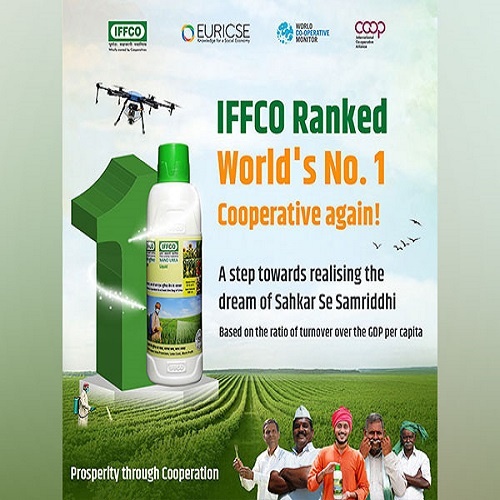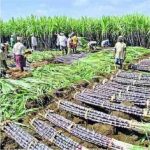New Delhi [India], December 2 (ANI): The Indian Farmers Fertiliser Cooperative Limited (IFFCO) has been ranked number 1 among the top 300 cooperatives in the world.
The ranking relates the turnover of the enterprise to the wealth of the country according to the 2022 edition of the 11th Annual World Cooperative Monitor (WCM) report published by the International Cooperative Alliance (ICA).
IFFCO has about 36,000 member cooperatives.
Among its notable achievements, IFFCO has developed the world’s first nano fertiliser with an aim to reduce the use of chemical fertiliser and enhance crop productivity — a giant step towards sustainable farming, besides increasing farmers’ income.
IFFCO has also secured 1st Position among the top ten cooperatives of the world in the agriculture sector. The International Cooperative Alliance (ICA) and the European Research Institute on Cooperative and Social Enterprises (Euricse) launched the 2022 edition of the World Cooperative Monitor during an international webinar on Thursday.
In the Top 300 ranking based on the ratio of turnover over the gross domestic product (GDP) per capita as they did last year, two Indian producer cooperatives reached the first and second positions: The Indian Farmers Fertiliser Cooperative (IFFCO) and Gujarat Cooperative Milk Marketing Federation Limited. In third place is the French Groupe Credit Agricole.
“It is a proud moment for IFFCO and the Cooperative brotherhood as well. A great achievement for all of us in the Indian Cooperative movement,” said US Awasthi, Managing Director of IFFCO.
Notably, most of the top 300 enterprises are from the most industrialized countries such as the US (71 enterprises), France (42 enterprises), Germany (31 enterprises), and Japan(22 enterprises).
About WCM: The World Cooperative Monitor is a project designed to collect robust economic, organizational, and social data about cooperatives worldwide. It is published each year to report on key economic and employment data of the Top 300 cooperatives.
This latest edition will mark the report’s move into its second decade of reporting on economic and social impact and presents a deeper dive into digitalization and cooperative identity. (ANI)












